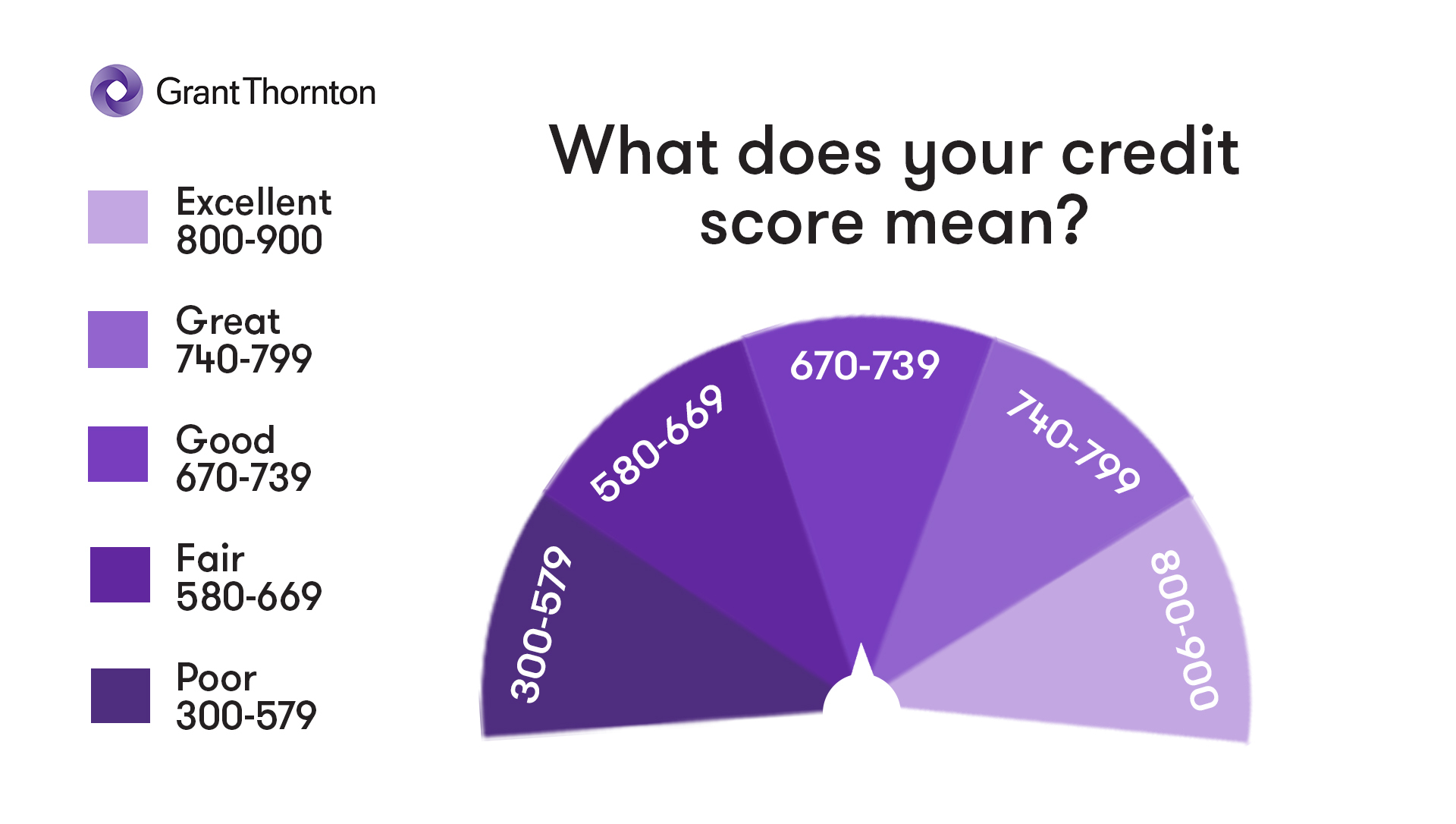The top 5 factors that affect your credit score

Do you know your credit score? Nearly half of Canadians have never requested their credit report and don’t know their score. It’s no secret that credit scores can be confusing, especially understanding the actions that can increase or lower it. When it comes to credit, what you don’t know can hurt you. We’ve created this simple guide on how to access, understand, and improve your credit score.
What’s a credit score?
Your credit score is a three-digit number based on your credit report. This number provides a snapshot of your credit risk or the likelihood you’ll pay your bills on time. Lenders will use your credit score to determine the risks associated with granting you credit. In Canada, credit scores generally range from 300 to 900. The higher your credit score, the higher your creditworthiness.
What’s a good credit score?
According to Equifax, a good credit score is 660 or above. Having a credit score in this range or above demonstrates responsible credit behaviour. A high credit score makes potential lenders more confident that you will be able to repay a debt. The higher your score, the more likely you are to get approved for credit, like a mortgage or personal loan.

Factors impacting your credit score
The two credit bureaus in Canada, TransUnion and Equifax, use five main factors to calculate your credit score.
- Payment history. How you’ve managed credit in the past is the most important factor that determines your credit score, as it shows how likely you are to pay your bills on time. Lenders want to see that you can make on-time payments or at least the minimum payment required. Missed and late payments could negatively impact your score.
- Credit utilization. This ratio tells lenders how much credit you're currently using of your total credit available. Suppose you’re using $2,500 of your total credit limit of $10,000 per month; you would have a credit utilization ratio of 25%. In general, lenders prefer when you have a credit utilization ratio of less than 35%.
- Length of credit history. Lenders like to see how long you’ve demonstrated responsible credit behaviour. The longer your credit accounts have been opened, the more credit behaviours your lender can assess.
- New credit. Most credit applications you make are reflected on your credit score. Depending on the type of credit inquiry, it could be referred to as a ‘hard check’ that can negatively impact your score. ‘Soft checks’, such as checking your credit score for free, don’t negatively impact your score.
- Types of credit. It can be beneficial to hold different types of credit, which allows lenders to see how you manage a variety of accounts. This doesn’t mean having multiple credit cards but rather diverse accounts such as a line of credit, car loan, or mortgage.
Not understanding how credit works may be holding you back financially—we've debunked five credit myths to help improve your financial health.
How to improve your credit score
Your credit score can be improved by consistently practicing healthy financial habits, such as:
- Pay your bills on time. Even if you can’t make the full debt payment, be sure to make at least the minimum payment. Keeping credit score inquiries to a minimum—only when they are absolutely necessary.
- Keep an eye on your balances. Credit usage can sneak up on us, making it important to ensure you aren't overspending or using too much of your available balance. Ensure that if you have to borrow, you are borrowing money wisely.
- Avoid opening new credit card accounts. Although multiple credit cards may offer perks or benefits, applying for one can look irresponsible to lenders.
- Ditch snail mail. Instead of waiting for your bills to come in the mail, access and manage your accounts online to get the most up-to-date balances.
- Avoid bad debt. Try these six tips to avoid taking on bad debt.
- Look for errors. Sometimes, the information reported by your creditors to credit bureaus is incomplete or incorrect. It is up to you to regularly check for errors that could negatively impact your score.
How to check your credit score
There are two major credit bureaus in Canada: Equifax and TransUnion. You can easily access your credit report and credit score for free from both credit bureaus online. Additionally, your financial institution may provide your credit score for free. To check, try logging into your online banking portal or check your monthly statement. Requesting and reviewing your credit report has no effect on your credit score—in fact, it’s a healthy credit habit to adopt.
If you feel overwhelmed by your credit situation and want to make a change that counts, Grant Thornton is here to help. We offer judgment-free, 30-minute consultations to help you find the best path to debt freedom. Book online or call us today at 1-844-4GT-DEBT to start your path to a brighter financial future.
Take the first step to debt freedom
Speak to one of our debt solutions professionals during a free, no-obligation consultation.
Related articles

Caught in the odds: Understanding gambling debt and how to get help

How can a Licensed Insolvency Trustee help with my debt?

Do you owe CERB debt? Here's what Canadians need to know about repayment

How much debt is normal in your province?

Can I file for bankruptcy if I own a house?

What Canada’s 2025 federal budget could mean for your taxes—and your wallet

4 common investment scams and how to avoid them
Looking for assurance, tax, and business advisory services? Visit Doane Grant Thornton LLP.

Loading